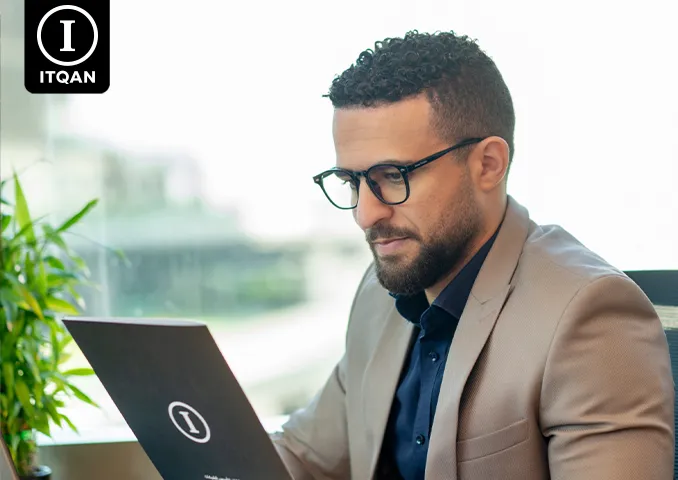Import and Export Licensing in Dubai: A Complete Guide for Entrepreneurs
Starting your journey towards business setup UAE begins with understanding the types of licenses required, especially if you’re dealing with international trade. For entrepreneurs looking to launch an import-export business in Dubai, obtaining the right license is crucial for smooth operations and legal compliance.
Why Choose Dubai for Import and Export?
Dubai has solidified its position as a global logistics and trading hub. With its strategic location connecting Europe, Asia, and Africa, it offers numerous advantages for entrepreneurs aiming to enter international markets. The city boasts world-class infrastructure, free zones, and a cost-effective business environment—making it a prime destination for business setup UAE.
- Strategic geographical location
- Tax-efficient business environment
- World-class sea and air connectivity
- Access to a global customer base
Types of Import and Export Licenses in Dubai
To successfully run an import-export business in Dubai, selecting the right trade license is essential. Depending on your chosen jurisdiction—Mainland or Free Zone—the licensing requirements may vary.
1. Commercial Trade License
This license is ideal for businesses looking to trade both locally and internationally. It allows entrepreneurs to import, export, and sell goods through wholesale or retail activities in Dubai.
2. General Trading License
If your business involves diverse goods that do not require special approvals, a General Trading License is the best fit. It’s widely used by businesses dealing with multiple product lines.
3. Free Zone Trade License
Free zones such as JAFZA, DMCC, and Dubai South offer specialized trade licenses. These licenses facilitate 100% foreign ownership but may limit trade within the local UAE market without a local distributor.
For a cost-effective option, explore Dubai South’s low-cost business setup guide.
Steps to Obtain an Import/Export License in Dubai
Launching an import/export venture in Dubai involves a series of well-defined steps. Here’s a practical roadmap for entrepreneurs:
- Choose Your Business Jurisdiction – Decide whether to set up in Mainland or within a Free Zone based on market access and trading needs.
- Define Business Activities – Clearly outline the products you plan to import or export. This determines the type of license to obtain.
- Select Trade Name and Get Initial Approval – Reserve your trade name and obtain preliminary approval from the Department of Economic Development (DED) or respective Free Zone authority.
- Apply for a Trade License – Submit all required documents including passport copies, visa copy, and a Memorandum of Association (MOA).
- Register with Dubai Customs – You must obtain an importer/exporter code by registering on the Dubai Customs portal.
- Lease Office Space – Depending on the license type, a physical office may be mandatory.
Interested in learning about licensing cost? Check our guide on trade license costs in Dubai.
Customs Registration and Clearance in Dubai
Once your business and trade license are active, the next critical step is customs registration. Dubai Customs handles the clearance of goods entering and leaving the UAE.
Steps to register with Dubai Customs:
- Create an account on the Dubai Trade Portal (https://www.dubaitrade.ae/)
- Provide your trade license and UAE Tenancy Contract
- Obtain a unique importer/exporter code
Free Zones for Import & Export Businesses
Free zones in Dubai offer many benefits for international businesses. Each zone has specializations and policies tailored to specific industries.
Popular Free Zones in Dubai for Trading
- Jebel Ali Free Zone (JAFZA): Ideal for shipping and freight companies
- Dubai Multi Commodities Centre (DMCC): Perfect for commodities trading
- Dubai Airport Free Zone (DAFZA): Best for air freight businesses
Benefits of using Free Zones:
- 100% foreign ownership
- Full repatriation of profits
- Corporate tax exemptions
- No import/export duties within the Free Zone
Import Regulations and Documentation
To ensure legal compliance, businesses must follow strict importation rules. Here’s what you need:
- Commercial Invoice
- Certificate of Origin
- Packing List
- Import Permit (for restricted items)
- Bill of Lading or Airway Bill
Some products like medical devices, food, and cosmetics require special approvals from UAE regulatory bodies. Visit the UAE government portal for detailed guidelines.
Export Procedures in Dubai
Exporting goods from Dubai also comes with formalities to follow:
- Goods must be accompanied by a proper Customs Declaration Form
- The exporter must obtain clearance from Dubai Customs
- Transport documents must be verified
By fulfilling these requirements, you ensure a compliant and efficient export process.
Common Challenges in Setting Up
While Dubai provides an inviting business climate, entrepreneurs may face obstacles such as:
- Confusion over license types and activities
- Delays in customs registration
- Lack of clarity on Free Zone rules
For tips on avoiding mistakes, check out this guide on common business setup mistakes in Dubai.
Maintaining Your Import/Export License
Once operational, it’s crucial to maintain your license to avoid fines or suspensions:
- Renew your trade license annually
- Ensure customs code validity
- Stay informed about UAE regulatory changes
Conclusion
Setting up an import/export business in Dubai offers numerous opportunities, thanks to its strategic location, business-friendly policies, and robust infrastructure. From choosing the right business setup UAE model to obtaining relevant licenses and registering with customs, every step plays a vital role in ensuring your success as an entrepreneur.
Want to streamline your process? Visit the official UAE government portal for updated regulations, or explore our in-depth guides to related topics.








